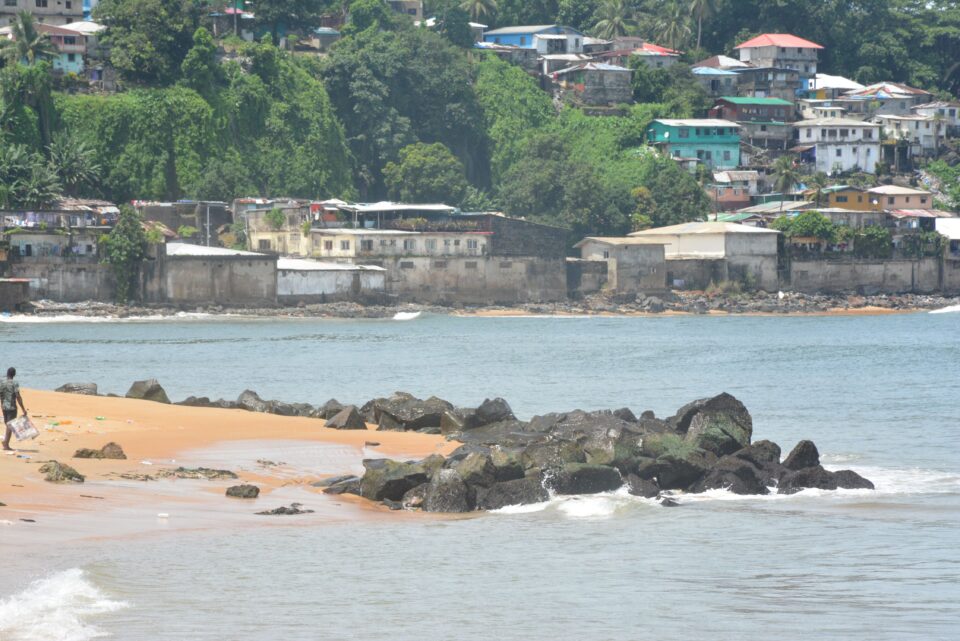OP-ED: By UNDP Liberia Resident Representative a.i. Louis Kuukpen
Monrovia, Liberia; November 21, 2023: Over the next five weeks, representatives from parties to the United Nations Framework Convention on Climate Change and stakeholders from around the world are expected to descend in Dubai, United Arab Emirates from 30th November to 12th December 2023 in what is dubbed as COP28.
This Conference of the Parties (COP), like other ones before it, will be quite significant considering that it marks the first comprehensive assessment of progress against the goals of the Paris Agreement. This COP is expected to focus on: Loss and Damage, Climate Finance, and Just Energy Transition Partnerships (JETP).
Liberia, as a party to the United Nations Framework Convention on Climate Change (UNFCCC) is expected to be visibly present at these negotiations with a delegation that includes representatives from government, civil society, and other actors.
Despite its limited contribution to global emissions, Liberia is one of those Least Developed Countries (LDCs) that continues to bear the brunt of the climate crisis. At the launch of the Implementation Plan for the country’s revised ambitious Nationally Determined Contributions (NDCs) in 2022, H. E. Dee-Maxwell Saah Kemayah Snr -Foreign Minister speaking on behalf of the President of Liberia noted “No country is immune to the impacts of climate change. In Liberia, climate change is disrupting agriculture, coastal erosion, and perennial flooding, critically impacting the agriculture, energy, and fisheries sectors.”
Speaking at the COP26 in Glasgow, H.E. President Weah highlighted that there is a need to bring equity and fairness to how the objectives of the Paris Accord on Climate Change can be achieved.
He bemoaned that countries like Liberia despite efforts made to protect its forest reserves, have received the lowest benefits for these ecosystem services noting “Although we bear the brunt of the impact of climate change, we benefit the least from the existing solutions and financial arrangements currently in place for tackling climate change”.
As the Liberian delegation marches into COP28 this year, exploring the best options for Climate Finance is expected to be key on the agenda and a priority for the country’s delegation during the ensuing negotiations. The government of Liberia has identified the forest sector as a pathway to accessing investment capital and financial resources that will catalyze its national development and reduce pressure on valuable ecosystems and tight fiscal space.
As one of the remaining countries in West Africa harboring high carbon stocks, Liberia commits to ensuring that forests are sustainably managed and maintained into the future. This bold position on the part of the Liberian government is quite laudable and builds on all the other efforts the country has embarked upon concerning its climate actions.
UNDP recognizes Liberia’s commitment to ensuring the conservation of its forests as well as the government’s desire to leverage its forest assets for accessing investment capital and financial resources that will catalyze its national development, achieve sustainable development goals, and implement Liberia’s NDC.
UNDP is committed and will continue to support the government in this endeavor. It is worth noting that Liberia has great potential for accessing carbon markets, however, for this potential to be realized, it is imperative to put in place the institutional requirements for engaging, including legal national frameworks, strategies, and safeguards for carbon market operations.
It is therefore important that those who care about Liberia’s forest and the development of the country get Liberia ready for the carbon market. A carbon readiness framework will help propel Liberia towards the carbon readiness path to ensure that key drivers of deforestation and degradation are prioritized, support the identification of barriers to results-based payments, and propose investment offers that will capitalize on current opportunities as well as potential emissions reductions and results-based carbon finance.
In the run-up to COP 28, this is a call to faster action that requires a stronger commitment to equity and justice for forest communities and future generations of Liberia. Through a collaborative partnership with the government, civil society, and development partners, we can put together a fit-for-purpose framework that can mobilize finance for Liberia. This requires working together across divides and making this initiative a top priority now so that Liberia fulfills its ambition while creating a more sustainable and just 21st century for Liberia.

